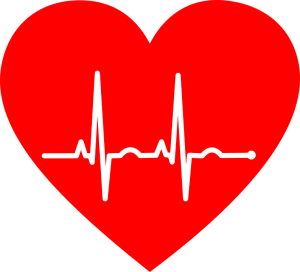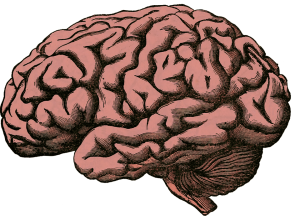
Many people may know they have high blood pressure, but they don’t understand the risk. They don’t think it’s a big deal, and this attitude will not serve them well when they later discover that hypertension has taken its toll on their body.
Without proper blood circulation, damage accumulates in your organs and other parts of your body, all of which rely on blood flow to function properly.
High Blood Pressure and Your Body
High blood pressure can negatively impact nearly all parts of your body.
This includes everything from your heart and arteries to your kidneys, eyes, and even your brain.
Artery Damage
High blood pressure damages the muscles in the walls of your arteries. It also narrows your arteries and makes them more susceptible to plaque build-up. Eventually, blood won’t be able to easily pass through them, which means your other organs won’t get the blood and oxygen they need.
In many cases, continued forceful pressure on your artery walls from hypertension results in coronary artery disease.
Heart Health

Your arteries and veins are responsible for bringing blood to and from your heart. If you damage them, your heart might not get the oxygen it needs to function properly, which can accelerate heart disease.
Additionally, high blood pressure means your heart has to pump harder to circulate your blood. This puts a lot of strain on it, eventually decreasing its efficiency even as your heart gets larger.
If this is left unchecked for a long time, it can lead to heart failure.
Kidney Disease
Hypertension is one of the leading causes of chronic kidney disease. Without proper blood flow, your kidneys have to strain to maintain their regular function. Over time, they’ll become less efficient, just like your heart.
Another common outcome is kidney scarring, which is when certain kidney blood vessels no longer function. This is known as glomerulosclerosis. Your body may lose protein more rapidly, and this can often lead to swelling and eventually end-stage renal disease.
Diseased kidneys have more trouble eliminating salt, excess minerals, and other waste from your body, which causes a build-up of these materials in your blood. Eventually, they may become so damaged that kidney failure results.
Brain Function
Hypertension can interfere with regular brain function as well. Your brain needs good blood flow. Without it, your whole body is at risk of shutting down.

High blood pressure makes you significantly more likely to have a stroke, which can result from damaged and blocked blood vessels. It may also increase your risk of TIAs (Transient Ischemic Attacks) or ‘ministrokes,’ which mimic strokes, but often, no actual damage to the brain occurs. TIAs often predate the real thing.
In some cases, very high blood pressure maintained for a long period can interfere with your regular cognitive function. You may experience memory issues and have more trouble focusing, and this condition can progress to vascular dementia if left untreated.
Vision Damage
You might not think of your eyes when you think of parts of your body that would be impacted by hypertension, but they’re susceptible nonetheless.
There are very small blood vessels in your eyes, and they’re fairly delicate, which means they’re at a higher risk of being damaged. You might experience fluid build-up under your retina, damage to your optic nerve, or retina damage, especially if you also suffer from diabetes. These conditions can cause blurry or distorted vision.
Prevention Through Addressing High Blood Pressure Causes
The most effective way to reduce the risks associated with high blood pressure isn’t to manage the symptoms but instead to address the causes.
While some medications and procedures might help you stall kidney damage or improve the function of your heart, the real problem is your high blood pressure. Unless you control the blood pressure, the other problems only get worse.
Common high blood pressure causes include not being physically active, undergoing extended periods of stress, and eating foods with high salt content or saturated fats. Making adjustments to these areas of your life can help prevent further organ damage and alleviate any painful or uncomfortable symptoms.
Final Thoughts
Every system in your body is interconnected to many other areas. What affects one organ often affects another, and your entire body is especially susceptible to cardiovascular disruptions.
It’s important to remember that high blood pressure is never a single problem. It is also the cause of numerous different diseases and conditions, many of which can detract from your quality of life.
Even if you don’t have symptoms from hypertension, the effects of its damage will make themselves known sooner or later unless you take steps to lower your blood pressure from the start.
